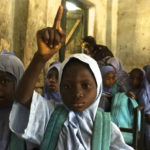It is no longer news that on July 29, as Governor Babagana Umara Zulum of Borno State was driving through Kukawa Local Government in his state to distribute relief materials to internally displaced persons, as he is in the habit of doing, his convoy came under heavy gunfire.
That singular incident has caused a ripple up and down the governance chain in Nigeria, as it rightly should.
- Borno gov Zulum escapes Boko Haram ambush
- There’s sabotage in counter-insurgency operation, Zulum insists
First was the dramatic outburst by the governor, who many say was justifiably outraged, in which he accused the military, not Boko Haram, of attacking his convoy.
“It is a complete sabotage… I cannot end my interview without clearly stating [that] what happened yesterday, as far as I am concerned, there was no Boko Haram yesterday (Wednesday). It was a serious shooting by the Nigerian armed forces while ‘residing’ in Baga. The situation is very embarrassing,” he said.
Of course, as expected, the military has denied this allegation and announced its decision to investigate the matter. The outcome of that investigation is being awaited.
What does not require any investigation is the fact that Gov Zulum and the military have clashed several times already over the handling of the Boko Haram insurgency in the northeast.
There was that time the governor, during one of his forays into the hinterlands of his state, ravaged by a decade-long insurgency, accused soldiers on the highways of extorting money from travellers. Of course, the military, again as expected, denied that allegation.
There was also the fallout from the Auno attack, when the military cordoned a road, leaving hundreds of travellers stranded and exposed overnight and making them sitting ducks for Boko Haram when they attacked, killing at least 30 persons. It was a massacre and Gov Zulum did not hesitate to blame the military for its complicity in the needless loss of lives.
Following the recent attack, the governor is quoted as saying, “You have been here for over one year now. There are 1,181 soldiers here. If you cannot take over Baga, which is less than 5km from your base, then we should forget about Baga. I will inform the Chief of Army Staff to redeploy the men to other places that they can be useful.”
It is a criticism of military tactics that the president would do well to pay attention to. It wouldn’t be the first. Civilians in Sokoto lamented military tactics deployed in the bombardments of bandits’ hideout around Isa Local Government recently. The absence of ground troops to mop up fleeing bandits allowed them to escape into villages where they regrouped and killed many villagers and displaced thousands of others. In April, the Chadian Army, after delivering a devastating blow on Boko Haram, criticized the Nigerian military for failing to push on from its side of the border and being lackadaisical in its approach to tackling the terrorists. It went as far as issuing an ultimatum to Nigerian troops to deploy and take over Nigerian territories the Chadians have seized from Boko Haram or else they would withdraw. The Nigerian military’s response was to deny that there were any Chadian troops on Nigerian soil despite reports from witnesses to the contrary. A later offensive, supposedly led by Gen. Buratai himself, claimed to have delivered a deathblow to Boko Haram. The terrorists’ recent activities suggest the contrary.
There have been various condemnations of the attack on Gov Zulum, from other state governors, from various associations of state governors and members of the National Assembly, who went as far as asking President Buhari to sack the service chiefs and bring in new ones with new impetus.
The Nigerian Governor’s Forum’s Chairman, Gov Kayode Fayemi of Ekiti wrote a letter lamenting the “collective vulnerability and the fragility of the country’s security architecture.”
Other governors declared that Zulum’s vulnerability meant they too are all vulnerable and raised concerned voices for the situation to be addressed decisively.
What has been glaring, amongst all the condemnations and reactions, is that there has been none from President Buhari, whose silence has been very loud indeed. If the president has spoken to Gov Zulum or issued any kind of assurance to him and other governors, it hasn’t been made public yet. Certainly, there has been no assurance issued to the average Nigerian.
That the governors of the Northeast Region, where Boko Haram, and its various offshoots, has held sway in the last decade, killing thousands and displacing millions, felt the need to form a forum of their own, or in other words a self-help group, to address their common challenges, is indicting. It is a clear indication of their wavering confidence in this government’s willingness and capacity to tackle insecurity.
Perhaps President Buhari is wise not to issue another inane condemnation of the attack, considering how such condemnations have been ridiculed of late as being meaningless and perfunctory. What would have been wise would have been for the president to make bold moves that would show he is still committed to the promise he made to Nigerians during his campaigns.
Many days have passed since the attack on Zulum and the upsurge of killings in Southern Kaduna and no such move has come from the president. It seems the modus operandi now is for the presidency to wait out the storm until something else distract Nigerians.
In a country of one week, one drama, it certainly wouldn’t take long for another situation to pop up and excite both the citizens and the media and turn attention away from the attack.
President Buhari’s reluctance to shake things up is baffling despite compelling events, like the mass killing of civilians and troops in territories where the military claimed to have decimated Boko Haram, the mass killing of civilians in the northwest by bandits, the ambush and massacre of troops in that region only a few weeks ago, and now the mass killing in Southern Kaduna, which the presidency has not reacted to yet.
The presidency’s strident rebuttal of the Senate when it demanded the sack of the service chiefs is equally puzzling. Rather than assessing the performance of the service chiefs, and reviewing it accordingly, the presidency, through presidential spokesman, Femi Adesina, said.
“The Presidency notes today’s Senate resolution, and reiterates that appointment or sack of Service Chiefs is a Presidential prerogative,” Adesina said in a tweet.
“President Buhari, in his capacity as Commander-in-Chief of the Armed Forces, will do what is in the best interest of the country at all times,” the Presidency noted.
What is in the interest of the country is certainly not this epic nonchalance. The service chiefs are already due for retirement in any case and the worsening insecurity in the country does not suggest that their performance in office has been convincing.
What President Buhari’s persistence with the service chiefs reminds of is his dogged determination to stick with disgraced erstwhile Economic and Financial Crimes Commission’s boss, Ibrahim Magu. Magu’s fall was a slap in the face of the president and one can only hope that the president’s faith in the service chiefs is not rewarded with a greater scandal beyond the massive loss of lives that the country has suffered.
However, one implication of the president’s body language is that governors and local leaders, communities and groups would have to resort to self-help to secure their territories.
The chaos that would result from this would be earth-shaking. But the question here is: does the president really care?

 Join Daily Trust WhatsApp Community For Quick Access To News and Happenings Around You.
Join Daily Trust WhatsApp Community For Quick Access To News and Happenings Around You.


